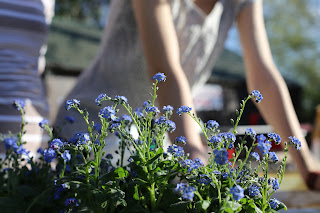In this challenging time, it’s easy
to set aside our healthy habits because of fear. It’s important we know about
our fears, but you don’t have to be controlled by them. Fear is normal and we
need a certain amount of fear for good judgment and to stay safe. Your decision
process can be affected if you are feeling anxious, especially if you allow
fear to feed your imagination. We will always have obstacles when working on
changing our habits, but I would ask you to remember your mindful eating
practices and listen to your body when stressed or otherwise. It is easy to
return to old habits and begin eating foods that are emotionally comforting. Pay
attention and look for foods that are healthy. One thing I noticed at the store recently -
there was no shortage of healthy food choices, but non-healthy processed foods
were scarce. Stay on track, journal your feelings, how much you’re moving and
log your daily meals.
Let’s talk about dealing with
stress, boredom, and getting the most out of our day. I want to talk about
moving and future proofing our bodies. Did you know that thirty minutes of
exercise a day can provide tremendous benefits to your health? These
benefits include holding on to muscle mass, help offset osteoporosis, maintain
a natural range of motion, lowering the risk of heart problems and avoiding
back pain.
How do you get these thirty minutes
worked into your day?
Here is information on how all
movement is important in helping to burn calories. This process is known as
Non-Exercise Activity Thermogenesis or N.E.A.T. NEAT occurs with every activity
that we perform except sleeping or performing sports-like exercises. It could
be yard work, housework, getting out of bed, or even fidgeting. People scoring
high in NEAT seem to fidget, move around for no reason, and get in more
movement throughout the day. Think of the fitness watches and how they track
your steps. These insignificant movements throughout the
day add up and the cumulative effect is an increase metabolic rate. Research
has shown that if we sit less and move more, we live longer.
NEAT is a large contributor to total
daily calories burned and could be the difference between gaining or losing
weight, because of the accumulative energy throughout the day. You could burn
up to 2,000 calories a day by just moving around and being on your feet. This
may seem to be a simple decision, but for many of us it’s not a natural
tendency to be on our feet and moving often. Our society has concocted all
kinds of ways for us to move as little as possible.
The Mayo Clinic reported a link between
sitting for lengthy periods and health concerns. These health issues include
obesity, increase blood pressure, as well as increases in the risk of
cardiovascular disease and cancer.
So, as you are tracking your food intake,
log your movement or exercise activities. Here are some ways you can try to
boost your NEAT score:
- Take a walk after each meal.
- Move around while watching TV.
- Walk around the house while you talk on the phone.
- If you can walk there, do so.
- If you can take the stairs, do so.
- Walk your dog.
- Deep clean your home.
- Do some yard work.
- Rearrange your closet.
- Use your computer to learn Yoga, Tai Chi, balance or stretch classes online.
Research has shown that sitting less
and moving more can help us live a longer, healthier life. The average
sedentary time for Americans is ten hours per day! Wow – so get up and
move around more often. Stand up, walk around the house, just move – it all
counts.
Remember - small movements
throughout the day add up and the overall effect can make a sizeable difference.
“The fastest way to still the mind
is to move the body,”
- Gabrielle Roth
Robin Anne Griffiths is a
published author, certified master development coach, personal trainer and
behavior change specialist. She works with groups and individuals on life
transitions to create personal balance - physically and mentally. www.rechargemezone.com

Comments
Post a Comment